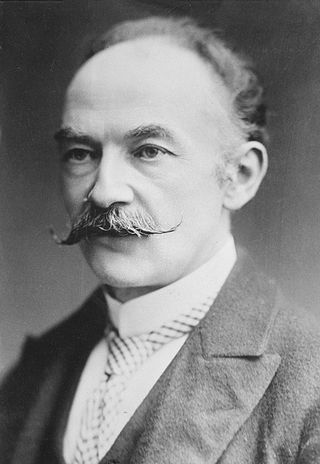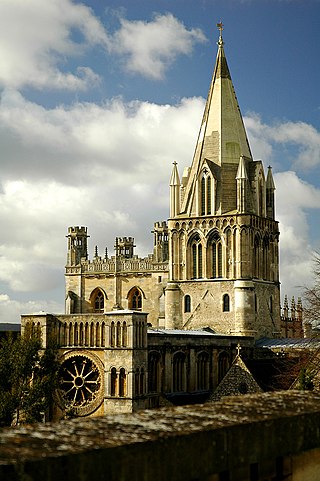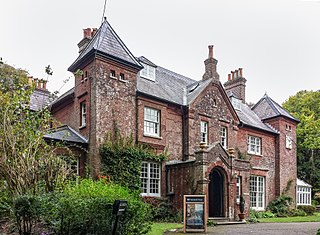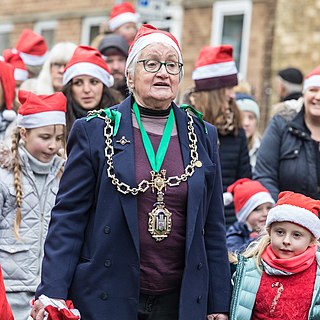
William Barnes was an English polymath, writer, poet, philologist, priest, mathematician, engraving artist and inventor. He wrote over 800 poems, some in Dorset dialect, and much other work, including a comprehensive English grammar quoting from more than 70 different languages. A linguistic purist, Barnes strongly advocated against borrowing foreign words into English, and instead supported the use and proliferation of "strong old Anglo-Saxon speech".

Thomas Hardy was an English novelist and poet. A Victorian realist in the tradition of George Eliot, he was influenced both in his novels and in his poetry by Romanticism, including the poetry of William Wordsworth. He was highly critical of much in Victorian society, especially on the declining status of rural people in Britain such as those from his native South West England.

Tess of the d'Urbervilles: A Pure Woman is a novel by Thomas Hardy. It initially appeared in a censored and serialised version, published by the British illustrated newspaper The Graphic in 1891, then in book form in three volumes in 1891, and as a single volume in 1892. Although now considered a major novel of the 19th century, Tess of the d'Urbervilles received mixed reviews when it first appeared, in part because it challenged the sexual morals of late Victorian England.

Dorchester is the county town of Dorset, England. It is situated between Poole and Bridport on the A35 trunk route. A historic market town, Dorchester is on the banks of the River Frome to the south of the Dorset Downs and north of the South Dorset Ridgeway that separates the area from Weymouth, 7 miles (11 km) to the south. The civil parish includes the experimental community of Poundbury and the suburb of Fordington.

Overcombe is an coastal area in Preston in south Dorset, England, situated on top of cliffs 2 miles (3.2 km) northeast of Weymouth. The River Jordan flows in the vicinity.

The Diocese of Oxford is a Church of England diocese that forms part of the Province of Canterbury. The diocese is led by the Bishop of Oxford, and the bishop's seat is at Christ Church Cathedral, Oxford. It contains more church buildings than any other diocese and has more paid clergy than any other except London.

Max Gate is the former home of Thomas Hardy and is located on the outskirts of Dorchester, Dorset, England. It was designed and built by Thomas Hardy for his own use in 1885 and he lived there until his death in 1928. In 1940 it was bequeathed to the National Trust by Hardy's sister and is now open to the public. It was designated as a Grade I listed building on 8 May 1970.

Upwey is a suburb of Weymouth in south Dorset, England. The suburb is situated on the B3159 road in the Wey valley. The area was formerly a village until it was absorbed into the Weymouth built-up area. It is located four miles north of the town centre in the outer suburbs. During the Census 2001 the combined population of Upwey and neighbouring Broadwey was 4,349.

Coade stone or Lithodipyra or Lithodipra is stoneware that was often described as an artificial stone in the late 18th and early 19th centuries. It was used for moulding neoclassical statues, architectural decorations and garden ornaments of the highest quality that remain virtually weatherproof today.

Thomas Hardy's Wessex is the fictional literary landscape created by the English author Thomas Hardy as the setting for his major novels, located in the south and southwest of England. Hardy named the area "Wessex" after the medieval Anglo-Saxon kingdom that existed in this part of that country prior to the unification of England by Æthelstan. Although the places that appear in his novels actually exist, in many cases he gave the place a fictional name. For example, Hardy's home town of Dorchester is called Casterbridge in his books, notably in The Mayor of Casterbridge. In an 1895 preface to the 1874 novel Far from the Madding Crowd he described Wessex as "a merely realistic dream country".

Thomas Hardy's Cottage, in Higher Bockhampton, Dorset, is a small cob and thatch building that is the birthplace of the English author Thomas Hardy. He was born there in 1840 and lived in the cottage until he was aged 34—during which time he wrote the novels Under the Greenwood Tree (1872) and Far from the Madding Crowd (1874)—when he left home to be married to Emma Gifford.
Dorchester Friary, also known as Dorchester Priory, was a Franciscan friary formerly located in Dorchester, Dorset, England.

John A. Fox (1835–1920) was an American architect. Fox practiced in Boston for fifty years and is best remembered for his works in the Stick Style.

The Cavalry of the Empire Memorial, also known as the Cavalry Memorial, is a war memorial in Hyde Park, London. It commemorates the service of cavalry regiments in the First and Second World Wars. It became a Grade II listed building in 1987, and was promoted to Grade II* in November 2014.

John Parkin was the first mayor when he was elected in 1629. The first woman to serve as mayor was Winifrede Marsden in 1930. Stella Jones MBE has been mayor three times and she was also the mayoress three times when her husband Trevor was mayor.

The County Hall is a municipal facility at Colliton Park in Dorchester, Dorset, England.
The Hardy Players (1908–1928) was an amateur theatrical company, based in Dorchester, Dorset. The novelist Thomas Hardy adapted his novels for live performance in collaboration with the group. In some cases he made major changes to the story, such as changing the ending of The Trumpet Major, truncating Return of the Native and making other changes to the text to better fit dramatisation. Hardy wrote his play The Famous Tragedy of the Queen of Cornwall specifically to be performed by the Hardy Players.

Liberty Plaza is a public plaza in downtown Atlanta, Georgia, adjacent to the Georgia State Capitol. Completed in 2015, the 2.2-acre plaza is capable of holding over 3,000 people and has hosted numerous political demonstrations in Atlanta.

The Municipal Buildings are located on the north side of High East Street in Dorchester, Dorset, England. The structure, which was the headquarters of Dorchester Borough Council, is a Grade II* listed building.

















